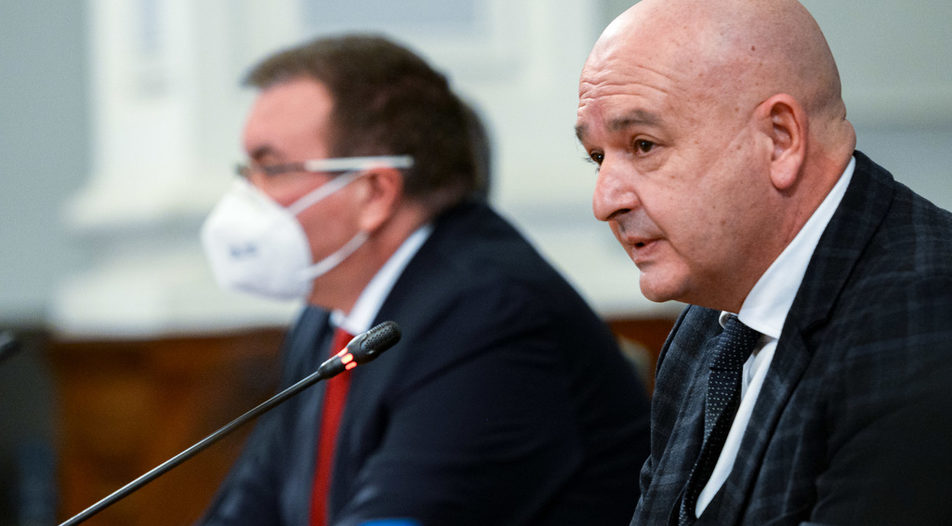As the President and Prime Minister exchange barbs about the border guard SUV purchase scheme targeted by EU's audit agency, OLAF, a closer look at the timeline of the procurement to buy shows that neither side is blameless. On the one hand, the problematic procurement procedure had been drawn up by presidential adviser and ex-Interior Minister Plamen Uzunov, and the selection procedure completed during his three-month stint at the ministry. On the other hand, his successor from GERB, Valentin Radev, did not cancel the contract (now deemed "scandalous" by the ruling party) and even defended the purchase in court. Both sides have questions to answer for but it is likely they will blame each other instead.
Health officials warns of more Covid-19 cases
"My prognosis is that, throughout February, there will be an overall increase in the number of people diagnosed with Covid-19," National Health Inspector Angel Kunchev told reporters on Thursday during a briefing of the Pandemic Crisis Staff. Ventsislav Mutafchisky, the head of the committee and director of the Military Medical Academy, warned fellow hospital heads to prepare for another spike in the number of Covid-19 patients needing intensive care. In the past week, Bulgaria has seen an 18% increase in the number of detected infections, after almost two months of decline in December 2020 and January 2021.
Apparently, Sofia has no plans to withdraw the AstraZeneca vaccine for the over-55s despite other EU countries ruling it out due to limited testing in control groups. Bulgaria is on delicate ground as it has ordered 4,5 million doses of the cheaper, easier to transport vaccine and is due to receive the first batch of the shots - designated especially for the elderly - by 7 February.
Elites' attitudes, propaganda and disinformation turn Bulgarians Eurosceptic, Russophile
Bulgarians believe that Sofia should prioritize good relations with Moscow, followed by Germany and the USA, according to a survey. Bias in the news media, which allows for constant pro-Russian disinformation and outright fake news, is one reason. Mostly, however, such attitudes stem from the authorities' muddled thinking - their inability to come up with a consistent and clear national policy - and tendency to blame the EU. Those are the main takeaways from a commentary by the director of the European Council on Foreign Relations - Sofia, Vessela Tcherneva, based on a cross-European study of attitudes towards the new US administration and Russia. "Today, questioning the Bulgarian geopolitical affiliation is not only short-sighted, but also dangerous," Ms Tcherneva wrote for Dnevnik.bg.
Bulgarian e-commerce grows 10 percent during the pandemic
Online shopping in the country has increased during the pandemic-ridden 2020, the Bulgarian E-commerce Association noted in its yearly report, reaching almost a billion euro. This amounts to a 10 percent increase on 2019, a slowdown compared to growth in the past half-decade that saw a doubling of the total e-commerce turnover from 415 million euro in 2016 to 974 million euros in 2020 with a 21-35 percent increase rate every year. Bulgarians mostly purchase clothes and sports goods, toys and furniture. Tickets for events and hotel bookings are the online services that attract the most customers.
As the President and Prime Minister exchange barbs about the border guard SUV purchase scheme targeted by EU's audit agency, OLAF, a closer look at the timeline of the procurement to buy shows that neither side is blameless. On the one hand, the problematic procurement procedure had been drawn up by presidential adviser and ex-Interior Minister Plamen Uzunov, and the selection procedure completed during his three-month stint at the ministry. On the other hand, his successor from GERB, Valentin Radev, did not cancel the contract (now deemed "scandalous" by the ruling party) and even defended the purchase in court. Both sides have questions to answer for but it is likely they will blame each other instead.












